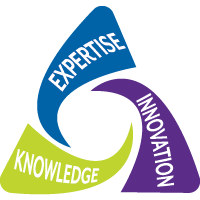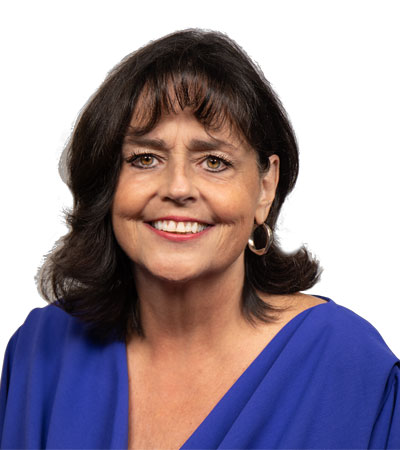Work Culture / Management (Keynotes)
Content descriptions of the educational offerings below provides greater detail to assist in choosing the right course.
If Florence Knew & How & When Did We Get So Lost: Examining Nursing's Unique Contributions to HealthCare (Keynote Address)
More than 140 years ago, Florence Nightingale wrote It may seem a strange principal to enunciate as the very first requirement in a Hospital that it should do the sick no harm. We are doing harm. Recent data from the Health grades report suggests that 63% of all preventable errors are focused on skin injury, post-operative respiratory complications and failure to rescue. The leading medical errors in this country fall within nursings independent scope. As a profession we are called to higher levels of safety and quality standards by government and professional organizations, by hospital administration, and most importantly, by patients to implement evidence-based nursing care strategies to reduce error. In addition, evidence supports that we are in the midst of a significant nursing shortage and it is expected to worsen in the next ten years. One of the significant factors contributing to nurses exiting the profession is challenging work cultures leading to burnout and job dissatisfaction. The nurse together with their peers are in an excellent position to lead, participate and design the necessary cultural changes required in a unit to meet the goals of patient safety while create a fun, empowered and healthy work environment. As the largest group of professional within a unit environment, the RN must accept responsibility for the work cultures we create. Unit culture can shape clinical practice and often determines whether we will be successful at creating a culture of safety. How do we create a value change and develop an environment that fosters professional growth and enthusiasm towards change, reduction of error and quality improvement?
This session will focus on front-line strategies developed and implemented in multiple settings to enhance the nurses feelings of personal power, confidence and a willing intent to demonstrate re-claiming of key care priorities, ownership in their own destiny and a solid team proactively changing their environment. A review of evidence-based strategies to create a healthy work culture will be outlined. Demonstrated outcomes of error reduction, low turnover rates and financial gains will be celebrated. The opportunity exists to positively influence change at the grass roots level and become a beacon of excellence.
The Future is Now: Designing Your Practice to Impact Patient Outcomes (Keynote Address)
Patient safety is a fundamental driver in shaping our nursing care. In our work cultures, basic nursing care activities and communication strategies designed to prevent harm, are frequently seen as just tasks to be completed before the end of the shift. This session places a new meaning to the word SAFETY. Using a mnemonic of SAFETY the participant will go on a journey of self-reflection and growth to help design their practice. S stands for self and encompasses taking care of one self and creating a respectful environment. A outlines are advocacy role expanding our view to truly encompass a Do No Harm focus in all we do. F is for fundamentals of practice that when valued and performed have the largest impact of patient outcomes. E refers to using evidence to drive decision making and clinical practice. T is team work and how critical it is to achieving sustainable outcomes. Y is yes I will be accountable for owning my practice, for developing myself and the team. It all matters.
Learn It Lead It Live It: Strategies for Driving Change to Impact Patient Outcomes (Keynote Address)
What does it take to be a healthcare change agent? What skills are necessary to be proactive versus reactive in making change happen at the unit, service line, program and organizational level. Consider driving change or being open to it often places us out of our comfort zone. Healthcare providers are only human. How do I change that fear or uncertainty into purposeful action? This session will focus on what it takes to drive change in healthcare today. A personal evaluation of our strengths and weakness are critical in knowing what skills are needed to help us step up and anticipate change. Practical strategies to help organize our focus based on the current healthcare climate will be discussed. Examples of how a simple question can start a journey of a life time if we provide the space for it to happen. The session will conclude with a formula to maintain the energy and passion necessary to be a driver of change in 21st century healthcare.
Creating an Environment for Change: Tools & Techniques to Impact Patient Outcomes at a Unit Level
The Clinical Nurse Specialist, Unit Manager and bedside nurse are in an excellent position to lead and design the necessary changes required in acute care to meet the economic and legislative agendas to reshape health care delivery. The key to successful navigation of change is the ability to draw a map highlighting the barriers and facilitators to achievement of the clearest path to change. Although change is most often an opportunity for growth and expansion, it is frequently looked upon with great fear and uncertainty.
Organizational structure and unit culture will shape clinical practice and often determines the degree of difficulty experienced when change occurs. How do we create a value change and develop an environment that fosters professional growth and enthusiasm towards change and quality improvement? This session will focus on front-line strategies developed and implemented in a MICU to enhance the staffs feelings of personal power, ownership in their own destiny and a solid functioning team proactively changing their environment. As we move toward the 21st century, the pace of health care reform is rapidly accelerating. The opportunity exists to positively influence change within your unit and organization.
Changing Work Cultures to Improve Patient Safety
The multidisciplinary unit team is in an excellent position to lead, participate and design the necessary changes required in acute care setting to meet the patient safety agenda healthcare is faced with today. The key to successful error reduction is the ability to change the current culture of blame and fear of punishment to a unit culture that sees mistakes as information that must be analyzed in order to change systems that support the employee. Although cultural change is most often an opportunity for growth and expansion, it is frequently looked upon with great fear and uncertainty. Clearly, the organizational structure and unit culture will shape clinical practice and often determines how medical errors are reported and managed. How do we create a value change and develop an environment that fosters professional growth and enthusiasm towards change, self-review and continuous quality improvement? This session will focus on front-line strategies from the literature as well as developed and implemented in a MICU to enhance the staff’s feelings of personal power.
Mind, Body and Spirit: Making the Connection by Creating A Healing Environment
The critical care area is an extremely stressful environment where anxiety is prevalent, pain frequent, rest difficult and sleep almost impossible. The ICU with its flashing lights, alarms, hectic pace and numerous unfamiliar faces can heighten the pain experience and create agitation. Significant amounts of pharmacological agents are used in critical care to manage patient response to their illness & environment. Clearly, if we were to assess the percentage of time the caregivers spend with the patient versus the time the patient spent interfacing with the environment, we would recognize that the environment must be considered as a therapeutic caregiver. This session will focus on a review of the literature on environmental factors which impact healing and examine strategies to overcome these barriers. A plan for changing a medical critical care environment to create a more healing atmosphere for patients and families will be introduced. The team believes noise level, color of the walls, type of art, exposure to nature, natural or artificial lights and interaction of the caregiver and family all impact healing and recovery. The team’s goal is to provide a caring, comfortable and safe passage to wellness or death while minimizing the stress within the environment. A discussion of a three-phase plan for the introduction of music, complimentary therapies and structural alterations will be reviewed. Initial data regarding outcomes of the planned change will be presented. Healing integrates both science and spirituality and assumes a strong connection between the body, mind and spirit.
Completing the Circle: Grief Management for Families and Staff Through Development of a Unit-Based Bereavement Committee
Grief is a normal emotion that accompanies death, not only for the loved ones of patients, but for caregivers as well. When engaged in a care-giving relationship for long periods of time, it is natural to develop a bond with the patient and family. However, if death should occur in the critical care environment, often the family quickly departs & little or no contact is maintained. We recognized an opportunity to impact the grieving process of our patients’ families as well as for ourselves through the initiation of a bereavement program within a medical intensive care unit. This session will share strategies for the development and implementation of a unit-based bereavement committee to help facilitate adaptive movement through the stages of grief for families & staff. Information will be discussed regarding the barriers and facilitators to the change process. The session will conclude with a presentation of the impact this program has on the families who have lost a loved one as well as the on the caregivers who provided support during the dying process. This session is intended for all nurses. Death can be a frightening and emotionally draining experience for both the family and caregiver. Through the implementation of a bereavement program we have successfully begun to meet the emotional needs of our families upon the death of their loved one while anchoring a sense of fulfillment & completion of the grief process for the staff.
Copyright © 2024 Kathleen Vollman. All Rights Reserved.


